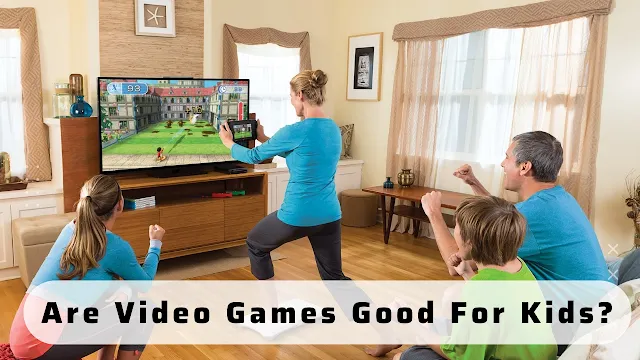Video games are a popular topic of conversation among kids. They help children develop technical skills, such as math, while also promoting social interaction. However, there is some debate about whether video games are good for children.
For example, some have suggested that excessive use of video games can negatively affect a child's development.
Other research has shown that video gaming can contribute to depression and aggression. The American Academy of Pediatrics recommends that parents limit the amount of time that children spend in front of the television or other screens. Research has shown that limiting screen time can improve a child's memory, concentration, and impulse control.
Some games, such as Age of Empires, have the potential to spark an interest in world history, geography, international relations, and ancient cultures. These kinds of games are designed to be challenging, requiring a bit of skill and patience. It is important to find a game that is appropriate for your child.
Another benefit of video games is that they can be used to teach your kids about the rules of the game. Games like this help children learn to stick to rules while having fun.
Other research has shown that video gaming can contribute to depression and aggression. The American Academy of Pediatrics recommends that parents limit the amount of time that children spend in front of the television or other screens. Research has shown that limiting screen time can improve a child's memory, concentration, and impulse control.
Some games, such as Age of Empires, have the potential to spark an interest in world history, geography, international relations, and ancient cultures. These kinds of games are designed to be challenging, requiring a bit of skill and patience. It is important to find a game that is appropriate for your child.
Another benefit of video games is that they can be used to teach your kids about the rules of the game. Games like this help children learn to stick to rules while having fun.
When a player loses, they are encouraged to try again and take into account others' feelings and the situation. This process is known as cooperative play.
Kids who play action-based video games can make decisions faster than their peers. Expert gamers are able to act on their choices six times a second.
In addition to its cognitive benefits, the benefits of playing a video game may extend to the physical well-being of your child. One study of obese children found that playing a game that uses motion to burn calories helped motivate the participants to continue exercising.
Although researchers aren't sure exactly how these benefits can be derived, they're certainly worth mentioning. For example, one study showed that video games are associated with improved spatial skills. Many of these games require the players to use their eyes and hands to navigate a 3D virtual world.
Kids who play action-based video games can make decisions faster than their peers. Expert gamers are able to act on their choices six times a second.
In addition to its cognitive benefits, the benefits of playing a video game may extend to the physical well-being of your child. One study of obese children found that playing a game that uses motion to burn calories helped motivate the participants to continue exercising.
Although researchers aren't sure exactly how these benefits can be derived, they're certainly worth mentioning. For example, one study showed that video games are associated with improved spatial skills. Many of these games require the players to use their eyes and hands to navigate a 3D virtual world.
While not as immersive as a real-life world, video games offer a safe place for young kids to explore their world, without the pressure of school or other social expectations.
One study of 2,200 children revealed that gaming helps children develop impulse control and memorization. It was also discovered that gamers showed higher levels of brain activation than non-gamers in regions that are related to attention and memory.
Some studies have suggested that video games can boost a child's self-esteem. These games may be viewed as a distraction or mindless activity, but they can be a natural way to promote learning and problem-solving. Despite the risks, some games are actually a lot of fun for kids.
Whether your child enjoys playing video games or not, it is always a good idea to introduce them to the world of computing and technology. There are plenty of games out there that will appeal to both children and adults, and many of them can help your child develop essential skills.
One study of 2,200 children revealed that gaming helps children develop impulse control and memorization. It was also discovered that gamers showed higher levels of brain activation than non-gamers in regions that are related to attention and memory.
Some studies have suggested that video games can boost a child's self-esteem. These games may be viewed as a distraction or mindless activity, but they can be a natural way to promote learning and problem-solving. Despite the risks, some games are actually a lot of fun for kids.
Whether your child enjoys playing video games or not, it is always a good idea to introduce them to the world of computing and technology. There are plenty of games out there that will appeal to both children and adults, and many of them can help your child develop essential skills.
A good starting point is to start with age-appropriate games that will introduce your child to computer technology.


Comments
Post a Comment